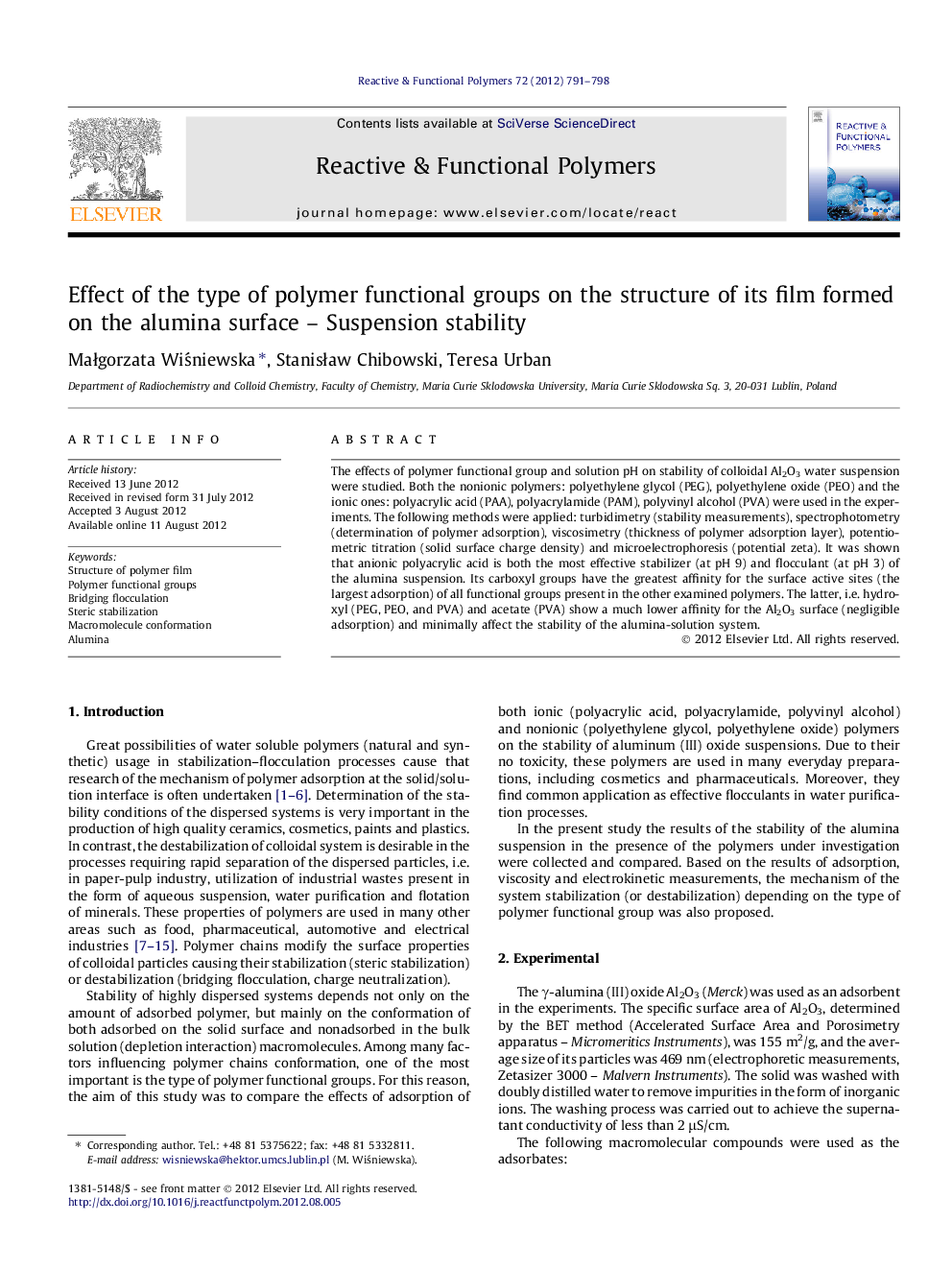| Article ID | Journal | Published Year | Pages | File Type |
|---|---|---|---|---|
| 5210197 | Reactive and Functional Polymers | 2012 | 8 Pages |
Abstract
The effects of polymer functional group and solution pH on stability of colloidal Al2O3 water suspension were studied. Both the nonionic polymers: polyethylene glycol (PEG), polyethylene oxide (PEO) and the ionic ones: polyacrylic acid (PAA), polyacrylamide (PAM), polyvinyl alcohol (PVA) were used in the experiments. The following methods were applied: turbidimetry (stability measurements), spectrophotometry (determination of polymer adsorption), viscosimetry (thickness of polymer adsorption layer), potentiometric titration (solid surface charge density) and microelectrophoresis (potential zeta). It was shown that anionic polyacrylic acid is both the most effective stabilizer (at pH 9) and flocculant (at pH 3) of the alumina suspension. Its carboxyl groups have the greatest affinity for the surface active sites (the largest adsorption) of all functional groups present in the other examined polymers. The latter, i.e. hydroxyl (PEG, PEO, and PVA) and acetate (PVA) show a much lower affinity for the Al2O3 surface (negligible adsorption) and minimally affect the stability of the alumina-solution system.
Related Topics
Physical Sciences and Engineering
Chemistry
Organic Chemistry
Authors
MaÅgorzata WiÅniewska, StanisÅaw Chibowski, Teresa Urban,
